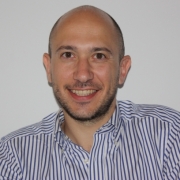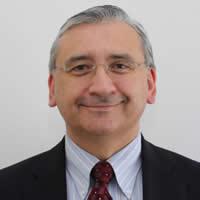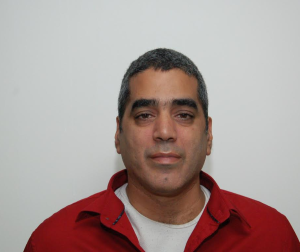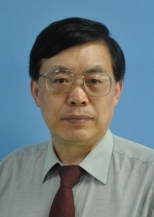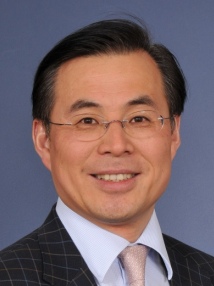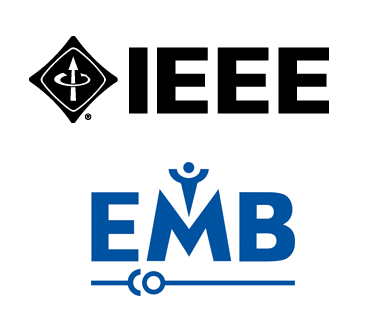prof. Metin Akay|prof. Maria-Teresa Arredondo Waldmeyer|Dr. Giuseppe Fico|prof. Dr. Friedrich Köhler|prof. Dr. Ralph Seepold|Dr. Erez Shalom|prof. Ron Summers|prof. Toshiyo Tamura|prof. Yuan-Ting Zhang|prof. G. Z. Yang|prof. May D. Wang
 prof. Metin Akay is currently the founding chair of the new Biomedical Engineering Department and the John S. Dunn professor of biomedical engineering at the University of Houston. He received his B.S. and M.S. in Electrical Engineering from the Bogazici University, Istanbul, Turkey in 1981 and 1984, respectively and a Ph.D. degree from Rutgers University in 1990. Dr. Akay has played a key role in promoting biomedical education in the world by writing and editing several books, editing several special issues of prestigious journals, including the Proc of IEEE, and giving more than hundred keynote, plenary and invited talks at international conferences, symposiums and workshops regarding emerging technologies in biomedical engineering.
prof. Metin Akay is currently the founding chair of the new Biomedical Engineering Department and the John S. Dunn professor of biomedical engineering at the University of Houston. He received his B.S. and M.S. in Electrical Engineering from the Bogazici University, Istanbul, Turkey in 1981 and 1984, respectively and a Ph.D. degree from Rutgers University in 1990. Dr. Akay has played a key role in promoting biomedical education in the world by writing and editing several books, editing several special issues of prestigious journals, including the Proc of IEEE, and giving more than hundred keynote, plenary and invited talks at international conferences, symposiums and workshops regarding emerging technologies in biomedical engineering.
He is the founding editor-in-chief of the Biomedical Engineering Book Series published by the Wiley and IEEE Press and the Wiley Encyclopedia of Biomedical Engineering. He is also the editor of the Neural Engineering Handbook published by Wiley/IEEE Press and the first steering committee chair of the IEEE Trans on Computational Biology and Bioinformatics. He established the Annual International Summer School on Biocomplexity from Gene to System sponsored by the NSF and the IEEE EMBS and is the founding chair of the IEEE EMBS Special Topic Conference on Neural Engineering.
He is also the chair of the IEEE EMBS Neuroengineering Technical Committee. He was the program chair of the International IEEE EMBS 2001 and the co-chair of the Annual International IEEE EMBS 2006 and the program co-chair of the Annual International IEEE EMBS 2011 conference which held in Boston . He currently serves on the advisory board of several international journals and on several NIH and NSF review panels.
Dr. Akay is a recipient of the IEEE EMBS Early Career and Service awards as well an IEEE Third Millenium Medal and is a fellow of IEEE, the Institute of Physics (IOP), the American Institute of Medical Biological Engineering (AIMBE) and the American Association for the Advancement of Science (AAAS). His Neural Engineering and Informatics Lab is interested in developing an intelligent wearable system for monitoring motor functions in Post-Stroke Hemiplegic Patients and detecting coronary artery disease. In addition, his lab is currently investigating the effect of nicotine on the dynamics of ventral tegmental area (VTA) dopamine neural networks as well as the detection of coronary occlusions.
 prof. Maria-Teresa Arredondo Waldmeyer
prof. Maria-Teresa Arredondo Waldmeyer
Universidad Politécnica de Madrid
Tecnología Fotónica
Associete Vice-Rector
Spain
María Teresa Arredondo Waldmeyer is full Professor of Bioengineering at the Telecommunication Engineering Faculty – Technical University of Madrid (UPM). Presently, she is the Director of the Vodafone Chair and the Director of International Latin-America Affairs of UPM. Prof. Arredondo has been Principal Researcher of more than 50 Granted Scientific & Technical Projects and EU-funded Projects dealing with Ambient Intelligence applied to the social and healthcare sector environments. Especially, in the areas of: advanced and smart graphical user interfaces and human factors evaluation; systems and services for people with special needs; mobile access to information services; tele-psychiatry, homecare; and intelligent biomedical clothes.
Currently, she is leading the UPM participation in some of the most challenging projects funded by the EU in the seventh framework programme in the area of e-Health like HeartCycl and METABO, and she is the project coordinator of PERFORM project. She is the author of 10 books and more than 300 scientific papers in relevant journals and international conferences.
Web site: http://www.upm.es/institucional
Giuseppe Fico was born in Italy, in 1980. He received the Diploma degree in Electronic Engineering (2005) by the University of Naples Federico II (Italy), with the specialization in Biomedical Engineering. In 2007, Giuseppe received the Master of Advanced Studies (MAst.) in Biomedical Engineering by the Technical University of Madrid, Spain (UPM). He is currently project manager and head of the health care team in the Life Supporting Technologies research group of the Telecommunication Engineering Faculty at UPM. His research focuses on ICT for Health, Ageing Well and Inclusion, with special attention to chronic disease management and diabetes. He has been project leader, on behalf of UPM, in several European research grants, mainly in the field of telemedicine and mobile health. Currently he is the Technical Manager of two projects dealing with diabetes disease management and on identification of environmental factors influencing uptake and progression of the disease. He has an active participation in international working groups, in particular the European Innovation Partnership on Active and Healthy Ageing, being also coordinator of the Action Group A1 Prescription and Adherence to medical plans.
Head of the Centre for Cardiovascular Telemedicine,
Senior Physician at the Medical Department of Cardiology and Angiology
Charité – Universitätsmedizin Berlin
CCM: Campus Charité Mitte
Centre for Cardiovascular Telemedicine
Prof. Köhler studied medicine at the Humboldt University, Berlin, and received his PhD in 1993 at the University of Surrey, Guildford, UK. He specialized in internal medicine and cardiology, and managed several international projects, including “Improvement of medical care for patients with congenital heart disease in the Baltic States through know-how transfer using modern information technologies” in 2000, „Partnership for the Heart“ – development and clinical testing of telecardiological Homecare Systems in 2004 -2011, „Health Region of the Future Northern Brandenburg – Fontane“ since 2009, „MAS – Nanoelectropnics for Mobile Ambient Assisted Living (AAL) system“ since 2010.
Prof. Dr. Ralf Seepold is Chair for Ubiquitous Computing at HTWG Konstanz (Germany). Ralf obtained his MSc from the University of Paderborn and his Ph.D. from the University of Tübingen.
He has been working as an Associate Professor for Telecommunication Engineering and Telematics at the University Carlos III of Madrid in Spain. As coordinator and principal researcher he launched the telemedicine project on integrated eHealth and eCare services for residential infrastructures. Ralf initiates the event on Ambient Intelligence for Telemedicine and Automotive domains and the event on Mobile Networks for Biometric Data Analysis. Ralf setup a network for supporting empowerment in rural areas, and he is leader of the project Mobile Sensor Suite Development for Biosignal Data. Recently, the international project SmartSleep has been launched, the objective is to analyze bio vital data, to detect patterns and to derive relationships between a person’s behavior and sleep disorders.
Currently, Ralf is elected leader of the working group on Interfaces of the national cluster initiative for Smart Home & Living and he is main contributor to the general roadmap of this initiative.
Ralf is Director of the Ubiquitous Computing Laboratory at HTWG where Biomedical Computing is one core research line. Recent work concentrates on biometric sensors and sensor integration, bio vital signal processing, embedded prototyping platforms and body area networks. He is teaching in three different degrees at HTWG, he is author and co-author of several publications and books, he is coordinator of several ERASMUS agreements and other bilateral research and PhD-cooperation agreements.
More information can be obtained at http://uc-lab.in.htwg-konstanz.de
Erez Shalom is Medical Informatics Expert and technology leader in the area of medical decision support systems, specializing in knowledge representation, knowledge acquisition, and execution of clinical guidelines. He received his PhD in Information Systems Engineering in 2013 from Ben-Gurion University Of The Negev, Israel.
As a senior researcher at the Medical Informatics Research Center in BGU, he developed the Digital Electronic Guideline Library („DeGeL“), and since 2012 he works as a work package leader in the FP7 EU MobiGuide Project (http://www.mobiguide-project.eu/), which involves 13 EU partners, and aims to provide continuous patient guidance in non-clinically controlled environments, through mobile interfaces. MobiGuide is currently being evaluated in clinical practice in the domains of Atrial Fibrillation and Gestational Diabetes Mellitus.
In addition, he is involved in many projects in the context of medical decision support systems (DSS) such as developing DSS applications for infection monitoring at the Children’s ICU, or DSS applications for remote treatment with telemedicine technology for chronic pain patient, where he tries to help patients with chronic pain to get recommendation and alerts into their mobile.
Erez co-founded healthcare IT start-up, and serves as its CTO since 2012. This start-up combines two systems, one that interprets medical data to clinically meaningful concepts, and one that recommends appropriate medical treatment based on the relevant evidence-based clinical guideline to patients at home via mobile, or to clinical staff at hospital.
As a technology leader, since 2006, he is teaching cloud and web-based technologies courses in Ben-Gurion University Of The Negev.
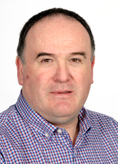 prof. Ron Summers
prof. Ron Summers
Ron Summers has worked with complex adaptive systems at the interface of engineering, science and informatics for over 25 years. He is both a Chartered Engineer and a Chartered Scientist. Though his principal application domain is biomedicine, he is also known for his guest lectures on innovation and entrepreneurship gained from personal experience. He has co-founded three companies thus far in his career, one of which employed over 150 people. His research contributions reflect the breadth of opportunities undertaken by working in teams brought together by EU consortia as well those as a consequence of successful bids to a range of national sources of funding. Ron excels in translating findings from research and enterprise into his teaching, updating materials and examples annually to keep himself and his students abreast of leading edge opportunities.
He has held senior academic positions at City University London – in the Department of Systems Science and then the Centre for Measurement and Information in Medicine; and at Loughborough University – where he was Head of Department of Information Science before his move across Faculties to the Department (now School) of Electronic, Electrical, and Systems Engineering in 2008.
Ron has been on the EU expert register since 2002 (EX2002B054772). From 2003 to 2006 he acted as an EU appointed Programme Manager for a telehealth project called ‘Doc@home’ which was unusual as it comprised only industrial partners. Its successful conclusion was partly put down to his ability to manage a research team within a pre-competitive environment. Ron was also appointed as the external Chair of the Telemedicine and Telehealth Board at Hong Kong Polytechnic University from 2001 to 2007; he has acted as External Examiner at the University of Lincoln, Leeds Metropolitan University, and City University London (twice) – and on one occasion his face made it to the cover page of their Postgraduate Prospectus! Currently, he acts as an Academic Advisor to the Systems, Technology Management and Environmental Management programmes at the Open University. He has been an active member of the EPSRC Peer Review College since 2006.
Ron takes service to the profession seriously, being a Vice-President of the Institute of Measurement and Control (InstMC) since 2000, with a two year term as President in 2007-8. He is a member of the InstMC Board of Trustees and remains an occasional Chair of both it and Council. He is the current Chair of the InstMC Communications Board and is Editor of the Journal of Measurement and Control. Ron was also a two-term Vice-President of the IEEE Engineering in Medicine and Biology Society (EMBS); and since stepping down in 2003 has held numerous roles to keep his service active. Currently he is Chair of the IEEE EMBS History Committee. Ron chairs Technical Committee 13 (Measurement in Biology and Medicine) within IMEKO (International Measurement Confederation), and helped bring the triennial IMEKO World Congress to Belfast in 2018 and serves on its Organising Committee. His service extends into philanthropy in his role as an Assistant in the Worshipful Company of Scientific Instrument Makers (WCSIM), in which he is an active member of its Education Committee. In his role as Fellow of the Institute of Measurement and Control, Ron is the convener of the Instrumentation Industry Liaison Group, whose membership bridges industry trade associations, academia, the National Physical Laboratory, the National Measurement Office, WCSIM and InstMC, and whose remit is to act as a champion to the sector when interfacing with Government agencies and beyond.
He was awarded with the IEEE Millennium Medal in 2001 for his services and accomplishments in Biomedicine; the WCSIM Bronze Medal for his delivery of the Four Liveries Lecture in 2012, entitled ‘How to mend a broken heart…’; and was awarded the Freedom of the City of London in 2011 as a consequence of being invited to join WCSIM as a Liveryman.
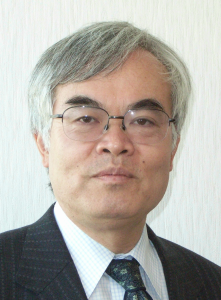 prof. Toshiyo Tamura
prof. Toshiyo Tamura
Toshiyo Tamura received his BS and MS degrees from Keio University, Japan, in 1971 and 73, respectively and Ph.D. from Tokyo Medical and Dental University in 1980. He is currently a Distinguished Professor, School of Biomedical Engineering, Osaka Electro-Communication University, Japan. He also holds several adjunct positions in universities in Japan and Singapore.
His research interests include biomedical instrumentation, biosignal processing, telemedicine telecare, home care technology and rehabilitation engineering. His research has resulted in over 120 English reviewed articles. His and his colleagues book entitled “Biomedical sensors and instruments” is a popular textbook for bio-instrumentation and medical devices. He also wrote several chapters including sensors for telemedicine and application of wearable inertia sensors.
He is involved regional innovation strategy support program and creates innovations for achieving healthy and long life through the development of health care systems with smart bioinstrumentation and testing He has developed unobtrusive monitoring systems and wearable devices for improving the quality of life
He has served as a chair of IEEE/EMBS Tokyo Chapter in 1996-2000, and the Asian Pacific representative for the EMBS from 2000 to 2004. He was a -president of Japanese Society of Medical Electronics and Biological Engineering in 2010-2012 and a-president of Japanese Society of Life Support Technology in 2009-2011.
prof. Yuan-Ting Zhang is currently the Director of Joint Research Center for Biomedical Engineering and Professor of Department of Electronic Engineering at the Chinese University of Hong Kong (CUHK). He serves concurrently the Director of the Key Lab for Health Informatics of the Chinese Academy of Sciences (HICAS) at the SIAT. He became the founding Head of Biomedical Engineering Division at the CUHK in Hong Kong and the founding Director of the SIAT Institute of Biomedical and Health Engineering of Chinese Academy of Sciences in Shenzhen in 2007.
His research spans several fields including wearable medical devices, body sensor networks, bio-THz technologies, bio-modeling, neural engineering, cardiovascular health informatics, and e-p-m-Heath and telemedicine technologies, and is closely tied up to his teaching and publishing activities. He has authored/co-authored over 400 scientific publications and 11 book chapters, and filed 31 patents. His research work has won him and his team a number of Awards including the best journal paper awards and outstanding service award from IEEE-EMBS, and the Asia Pacific ICTA e-Health Grand Award.
Dr. Zhang provided extensively professional services of significant value to the local industries and global academic communities. He served as Associate Editor of IEEE Transactions on Biomedical Engineering, founding Associate Editor of IEEE Transactions on Mobile Computing, Guest Editor for IEEE Transactions on Information Technology in Biomedicine, and Guest Editor for IEEE Communication Magazine. He was previously AdCom member and the Vice-President of the IEEE-EMBS. He served as the Technical Program Chair and the General Conference Chair of the 20th and 27th IEEE-EMBS Annual International Conferences in 1998 and 2005, respectively. He was a member of IEEE Fellow Elevation Committee and the Award Committee for IEEE Medal on Innovations in Healthcare Technology.
Dr. Zhang serves currently on IAMBE Fellow Membership Committee, IEEE-EMBS Standard Committee, HK-ITC Projects Assessment Panel, and Dr. Zhang also serves Editorial Board Member for the Book Series of Biomedical Engineering published by IEEE Press and Willey, Chair of working group for developing IEEE standard on wearable cuffless blood pressure measuring devices, the International Committee Chair of the 35th IEEE-EMBS Annual Conference in Japan, and Editor-in-Chief of IEEE Transactions on Information Technology in Biomedicine (which will be renamed as IEEE Journal of Biomedical and Health Informatics (J-BHI) starting from Jan. 2013).
Dr. Zhang holds the fellowships from the International Academy of Medical and Biological Engineering (IAMBE), Institute of Electrical and Electronics Engineers (IEEE), and the American Institute of Medical and Biological Engineering (AIMBE) in recognition of his outstanding contributions to the development of wearable medical devices and mobile health technologies.
Dr. Zhang completed his undergraduate and Master Degree studies in 1976 and 1981, respectively, in telecommunication from Department of Electronics of Shandong University and was conferred a Ph.D. in the area of Biomedical Engineering from the Department of Electrical Engineering at the University of New Brunswick in 1990.
Director and co-founder of the Hamlyn Centre for Robotic Surgery and Deputy Chairman of the Institute of Global Health Innovation (IGHI), Imperial College. Professor Yang also holds a number of key academic positions at Imperial – he is Director and Founder of the Royal Society/Wolfson Medical Image Computing Laboratory, co-founder of the Wolfson Surgical Technology Laboratory, and Chairman of the Centre for Pervasive Sensing. He is a recipient of the Royal Society Wolfson Research Merit Award and the I.I. Rabi Award from the International Society for Magnetic Resonance in Medicine. His main research interests are in medical imaging, sensing and robotics. He is internationally recognized for his innovations and clinical applications of MR imaging and flow quantification and pioneering effort in perceptual docking for robotic control and Body Sensor Network (BSN).
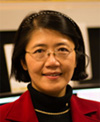 prof. May D. Wang
prof. May D. Wang
Associate Professor, Georgia Research Alliance Distinguished Cancer Scholar, Director of Biocomputing
and Bioinformatics Core in Emory-Georgia Tech Cancer Nanotechnology Center
Co-Director of Georgia Tech Center for Bio-Imaging Mass Spectrometry
Affiliation: Department of Biomedical Engineering, School of Electrical and Computer Engineering, Winship Cancer Institute, Parker H. Petit Institute of Bioengineering and Biosciences, Georgia Institute of Technology and Emory University
May D. Wang, Ph.D. is an Associate Professor in the Joint Department of Biomedical Engineering of Georgia Tech and Emory and School of Electrical and Computer Engineering of Georgia Tech. She is a Kavli Fellow, a Georgia Research Alliance Distinguished Cancer Scholar, and a Fellow of The American Institute for Biological and Medical Engineering (AIMBE). She serves as Co-Director of Biomedical Informatics Program of Georgia Tech in Atlanta Clinical and Translational Science Institute, Co-Director of Georgia-Tech Center of Bio-Imaging Mass Spectrometry, and Biocomputing and Bioinformatics Core Director in Emory-Georgia-Tech Cancer Nanotechnology Center. She is also with Emory Winship Institute, Georgia Tech IBB and and IPaT.
Prof. Wang’s research is in Biomedical Big Data analytics with a focus on Biomedical and Health Informatics (BHI) for Personalized and Predictive Health. Her research includes high throughput NGS and -omic data mining to identify clinical biomarkers, bionanoinformatics, pathological imaging informatics to assist in clinical diagnosis, critical and chronic care informatics for evidence-based decision making, predictive systems modeling to improve health outcome, and delivering informatics solution for telehealth. Dr. Wang is the corresponding/co-corresponding author for peer-reviewed articles published in Proceedings of National Academy of Sciences (PNAS), Annual Review of Medicine, Journal of American Medical Informatics Association (JAMIA), Nature Protocols, BMC Medical Imaging, Journal of Biomedical and Health Informatics (JBHI), Circulation Genetics, Nanomedicine, Journal of Pathology Informatics, IEEE/ACM Transactions on Computational Biology and Bioinformatics (TCBB), Briefings in Bioinformatics, BMC Bioinformatics, Proceedings of The IEEE, IEEE Transactions on Information Technology in Biomedicine (TITB), Annals of BME (ABME), and Trends in Biotechnology etc.
Currently, Prof. Wang serves as the Senior Editor for IEEE Journal of Biomedical and Health Informatics (J-BHI), an Associate Editor for IEEE Transactions on Biomedical Engineering (TBME), and an Emerging Area Editor for Proceedings of National Academy of Science (PNAS). She also serves as IEEE EMBS Biomedical and Health Informatics Technical Committee Chair. She is an IEEE-EMBS 2014-2015 Distinguished Lecturer, and an EMBS Administrative Committee Officer representing North America. In addition, Dr. Wang has devoted to the training of young generation of data scientists and engineers, and is a recipient of Georgia-Tech’s Outstanding Faculty Mentor for Undergraduate Research.

